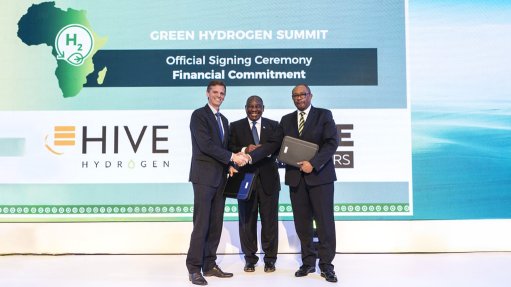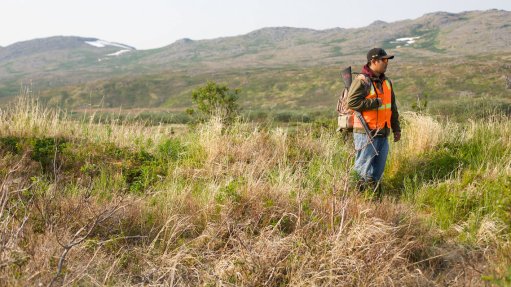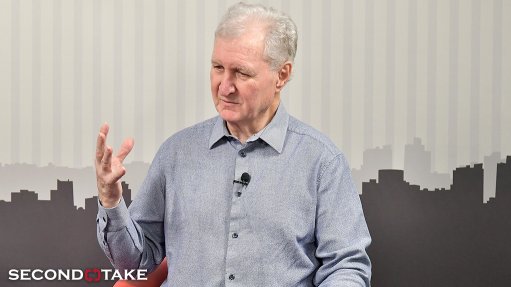Africa-focused conference will provide key ESG insight for industries
The importance of embedding environment, social and corporate governance (ESG) principles into any modern business cannot be understated, which is why an Africa-focused ESG conference, which situates ESG considerations within the African context, will take place in October.
The ESG Africa Conference, to be held at the Sandton Convention Centre on October 25 and 26, is unique, says Strategic Mindsets owner and conference cofounder Wendy Poulton. She explains that, while there have been other ESG conferences, they did not necessarily explore the African context in any depth, or only did so insofar as to ponder financial permutations.
The ESG Africa Conference seeks to create a platform for African leaders and experts to discuss, debate and find solutions to some of the common challenges faced when trying to embed ESG practices within organisations.
Poulton partnered with ESG Africa Events director Joshua Low, SKULTCHA chief transformative impact officer Dr Marie Parramon Gurney, and Safety Health and Environment legal consultant Justine Sweet to create the conference.
“With this conference, there are a number of sessions where we talk about the social issues in depth which is so important in the African context. The other thing that differentiates our conference is that we’re focusing on leadership, and not just CEOs, but how you can become a leader at any level in any organisation. We will also explore the different skillsets and attitudes that you need to make ESG a ‘positive risk’, or opportunity, for your organisation,” Poulton comments.
“ESG is about profit a purpose,” she says. “Not only is it the right thing to do, it’s not going to be the financial burden many assume it will be. On the contrary, ESG makes business sense.”
She explains that the financial and reputational implications of failing to comply with ESG best practice can hinder a business’s competitiveness and general sustainability. “If, for example, you own a business that exports to countries that have strict ESG requirements, such as those in the European Union, then noncompliance is certainly going to impact on your ability to trade.”
Further, companies within the mining and energy space that are noncompliant limit their ability to attract or retain funding from financial institutions and investors.
There is also a trend toward legal action being taken against companies for climate-related transgressions, particularly in Europe, but Poulton notes that these legal challenges will likely become more common in African countries as well, adding that they could even evolve to include transgressions in terms of the social and governance aspects of ESG.
Poulton adds, “for me, ESG compliance is a way of managing risk, both positive and negative risk, because, in addition to avoiding potential pitfalls, compliance with ESG also brings many opportunities”. Chief among them being a way for companies to communicate and connect with their customers, as well as the people and communities located around their facilities.
Challenges
“One of the challenges that we must address is ensuring that ESG is not too complicated for small, medium-sized and microenterprises (SMMEs). When we talk about ESG in the context of big companies, they are generally able to manage their ESG obligations. But we really need to engage SMMEs and we need to figure out how to do so in a way that is not too onerous for them.”
Poulton adds that one of the panels at the conference will talk to integrated reporting, and how companies can manage reporting obligations.
“I think it’s becoming an increasing concern, in terms of the number of reporting standards, the indicators that must be used, what’s important, what’s not important, what’s material to your business. It’s very intensive, and for small companies it is becoming unmanageable, especially if you’re working across multiple jurisdictions.”
She comments that, despite the work done at an international level to try and align many of these standards, there are still sector-specific and institution-specific reporting standards, which can add to SMMEs’ bureaucratic burden.
Poulton notes that the questions of inclusive engagement and integrated reporting are two of many that the conference seeks to answer to help address the core concerns for African companies.
“One of the areas that companies are really finding challenging in South Africa is the climate change aspect, especially because national electricity generation is primarily coal-based,” she comments, noting that local companies typically have a significant carbon-footprint because they rely on the national grid for their energy needs.
Another climate-change-related challenge is good water management, especially in light of increasing droughts and Day-Zero scenarios, as with Gqeberha. This challenge speaks both to responsible water consumption and reuse, as well as to maintaining the water quality of raw water resources.
“And then, on the social side, and certainly for the energy and mining space, a key consideration is the Just Transition and how to mitigate the impact on workers, as well as the challenge of ensuring that the country, and the continent as a whole, has the skills that we will require to leverage newer, cleaner technologies.”
With the governance aspect Poulton said: “In terms of governance, companies should consider which indicators need to be put in place to ensure good governance and not just see it as a tick box exercise. However, there still needs to be a balance between companies having the freedom to be agile and flexible, and having onerous governance processes.”
Some of the conference panellists engaging with these and other questions include Just Share executive director Tracy Davis, former South African Supreme Court Judge and African Integrated Reporting Council chairperson Mervyn King, Good Governance Academy CEO Carolyn Chalmers and Competent Boards CEO and founder Helle Bank Jorgensen.
The conference is expected to attract in excess of 250 delegates and will include 18 conference sessions and 40 industry speakers.
Comments
Press Office
Announcements
What's On
Subscribe to improve your user experience...
Option 1 (equivalent of R125 a month):
Receive a weekly copy of Creamer Media's Engineering News & Mining Weekly magazine
(print copy for those in South Africa and e-magazine for those outside of South Africa)
Receive daily email newsletters
Access to full search results
Access archive of magazine back copies
Access to Projects in Progress
Access to ONE Research Report of your choice in PDF format
Option 2 (equivalent of R375 a month):
All benefits from Option 1
PLUS
Access to Creamer Media's Research Channel Africa for ALL Research Reports, in PDF format, on various industrial and mining sectors
including Electricity; Water; Energy Transition; Hydrogen; Roads, Rail and Ports; Coal; Gold; Platinum; Battery Metals; etc.
Already a subscriber?
Forgotten your password?
Receive weekly copy of Creamer Media's Engineering News & Mining Weekly magazine (print copy for those in South Africa and e-magazine for those outside of South Africa)
➕
Recieve daily email newsletters
➕
Access to full search results
➕
Access archive of magazine back copies
➕
Access to Projects in Progress
➕
Access to ONE Research Report of your choice in PDF format
RESEARCH CHANNEL AFRICA
R4500 (equivalent of R375 a month)
SUBSCRIBEAll benefits from Option 1
➕
Access to Creamer Media's Research Channel Africa for ALL Research Reports on various industrial and mining sectors, in PDF format, including on:
Electricity
➕
Water
➕
Energy Transition
➕
Hydrogen
➕
Roads, Rail and Ports
➕
Coal
➕
Gold
➕
Platinum
➕
Battery Metals
➕
etc.
Receive all benefits from Option 1 or Option 2 delivered to numerous people at your company
➕
Multiple User names and Passwords for simultaneous log-ins
➕
Intranet integration access to all in your organisation


















